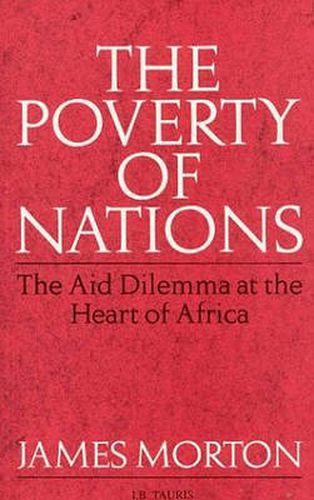Readings Newsletter
Become a Readings Member to make your shopping experience even easier.
Sign in or sign up for free!
You’re not far away from qualifying for FREE standard shipping within Australia
You’ve qualified for FREE standard shipping within Australia
The cart is loading…






After 30 years of ever increasing aid, most African countries are no better off than they were at independence - indeed, many are slipping back and earlier economic and political achievements are being undermined. This book attempts to answer the questions: Why? What went wrong The author argues that the widespread theory of putting the last first is fine in theory but that in practice the last is unaffected He looks at aid as an essentially top-down exercise and discusses the failure of ambitious projects because of over-ambitious targets and inadequate controls. He also tackles the thorny question of whether aid to Africa shouldd be stopped so that the continent’s economic evolution should be allowed to proceed at its own pace, without outside attempts to short-circuit the process. He looks at various approaches: aggressive intervention, greater financial accountability as a condition of aid, long stays in the field by donor staff, and finally and most radically the ultimate in bottom-up approaches: direct cash transfer. All these issues are informed by the author’s long experience as a development official in Africa, the Middle East and Asia.
$9.00 standard shipping within Australia
FREE standard shipping within Australia for orders over $100.00
Express & International shipping calculated at checkout
Stock availability can be subject to change without notice. We recommend calling the shop or contacting our online team to check availability of low stock items. Please see our Shopping Online page for more details.
After 30 years of ever increasing aid, most African countries are no better off than they were at independence - indeed, many are slipping back and earlier economic and political achievements are being undermined. This book attempts to answer the questions: Why? What went wrong The author argues that the widespread theory of putting the last first is fine in theory but that in practice the last is unaffected He looks at aid as an essentially top-down exercise and discusses the failure of ambitious projects because of over-ambitious targets and inadequate controls. He also tackles the thorny question of whether aid to Africa shouldd be stopped so that the continent’s economic evolution should be allowed to proceed at its own pace, without outside attempts to short-circuit the process. He looks at various approaches: aggressive intervention, greater financial accountability as a condition of aid, long stays in the field by donor staff, and finally and most radically the ultimate in bottom-up approaches: direct cash transfer. All these issues are informed by the author’s long experience as a development official in Africa, the Middle East and Asia.